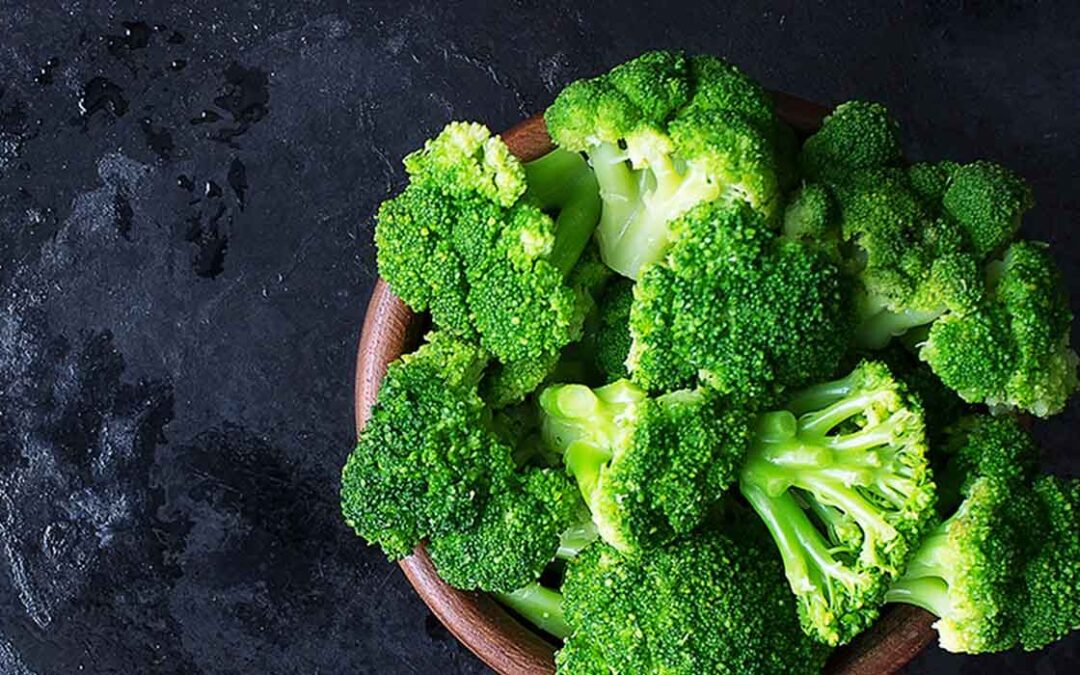Broccoli Nutritional

Whenever we talk about green vegetables, some choices are quite obvious. Broccoli tops the charts; thanks to the high nutritional content it has. But there is more to broccoli than we can see. It has benefits beyond our imagination. Let’s get to know about all of this in this article. BBroccoli overview
It is a famous edible plant with green color leaves and stems. Belonging to the cabbage family, it has a large flowering head. The stalk is also large and the leaves it has are quite small in shape and size. The leaves are the part which we eat as a vegetable. It is from the Italica cultivar group and belongs to the species Brassica oleracea. The large flower heads are usually green in color and as we know they are in an arrangement of a tree. The heads’ structure branches out from a thick stalk that is usually light green, which also forms an important vegetable. The leaves surround the entire mass of the leaves. One can also resemble broccoli to cauliflower due to the structure. However, cauliflower is from different cultivar from the same species.
People eat broccoli in its raw form as well as after cooking. It is a rich source of vitamin C and K. There are plenty of additional contents in it including isothiocyanates, sulforaphane, glucosinolate, etc. one can preserve these easily by steaming or microwaving the vegetable.
Nutritional value
We all know how green veggies are packed with lots of nutrition and essential elements required by our bodies. Broccoli is not an exception. In fact, this green vegetable is more nutritious than many other vegetables in the category. It contains an ample number of vitamins, minerals and bioactive compounds. Being rich in nutrient content and low in calorie content, it has an important part to play in the diet regime. A wide array of minerals, fiber and several other compounds are present. Let us brief you about the nutritional value of this vegetable.
When you take a cup of broccoli, you are having around 90 grams of the broccoli. This will give you 6 grams of carbs and 2.6 grams of protein. You will get a small amount, 0.3 grams of fat and 2.4 grams of fiber. Additionally, you will also consume 135% of vitamin C and 116% Vitamin K. other vitamins contain Vitamin F9 14% which is a form of folate. Folate helps us is increasing our immunity and blood cells. Broccoli also has 8% of potassium and 6% of phosphorus. There are contents of Selenium 3% also in the vegetable. Mind that whenever we are using the percentage in the content, we are linking it to the data provided by RDI and hence these are standard calculations. RDI stands for reference daily intake which means the amount we need per day.
Uses of broccoli
Broccoli is a versatile vegetable, not just in nutrient content, but in the ways of preparation as well. You can cook it or have it raw in salads. You can make vegetables from it. All the methods will provide equal amounts of nutritions to your body. People have been using new cooking methods as well such as microwaving, steaming, boiling, and stir-frying broccoli. This can alter the nutritional component of the vegetable to some extent.
Many scientists believe that using these methods might lower down the vitamin C content of the vegetable. Some even suggest a reduction in soluble protein and sugar content using different methods of cooking. Out of the lot, steaming and raw vegetable eating seem the perfect method that retains the maximum nutrient value.
Broccoli has a good amount of vitamin C which means it’s good for our immunity. When you eat just half a cup of broccoli, you are getting 84 % of the daily intake of vitamin C for your body. Broccoli has many other benefits which we will discover now.
Antioxidants benefits

Broccoli contains an adequate number of antioxidants that can provide you various health-protective benefits. The content of the antioxidant is something we cannot ignore. These are present in huge amounts in the vegetable. Antioxidants are the molecules that our body requires to help reduce cell damage. These damages are caused by free radicals in our bodies. These free radicals are the result of the chemical reactions in our bodies. Hence, antioxidants help relieve us from free radicals. This can help in the reduction of inflammation caused by those radicals that are not treated.
Broccoli also contains amounts of glucoraphanin. This is a compound that, when converts into a potent antioxidant can help us provide relief in digestive problems. The end compound is called sulforaphane. It offers various health benefits which we are not aware of. It can cure digestive health and help in reducing blood sugar levels. It is also good for maintaining our cholesterol levels. One can also get relief from oxidative stress with broccoli.
Some of the other antioxidants include zeaxanthin and lutein. These can help reduce cellular damage in our eyes.
Broccoli helps reduce inflammation

The presence of many bioactive compounds in broccoli can help reduce inflammation. These are body tissue inflammation that can lead to dangerous symptoms. When we eat broccoli, several types of multiple compounds are working together to help reduce inflammation. However, the scientist also found that several compounds work in an individual manner as well.
For instance, a flavonoid called Kaempferol can provide strong action against inflammation.
An amazing fact to notice here is that broccoli can help reduce the risk of internal organ inflammation in people who have regular smoking or drinking habits.
Anti-cancer properties

Broccoli is a type of cruciferous vegetable. These types of vegetables have various compounds that help in the reduction of cell damage. Since cancer starts by damaging the cells of our tissues, broccoli may affect the cancer growth in several patients. Many people suggest combining broccoli with other treatment options to see better results, especially in chronic conditions.
The anti-cancer properties of broccoli are not confined to few cancer types. It can help us fight several tumors such as that of breast, stomach, prostate, kidney, rectal and colorectal.
Helps in blood sugar control

The reduction in blood sugar level is related to various types of antioxidants and a high amount of fiber content in the broccoli. The vegetable can be a boon for people suffering from blood sugar levels or diabetes. People on a regular diet of broccoli have reduced insulin resistance. This is evident especially in patients with Diabetes 2. Broccoli in the form of sprouts is more influential for this purpose.





